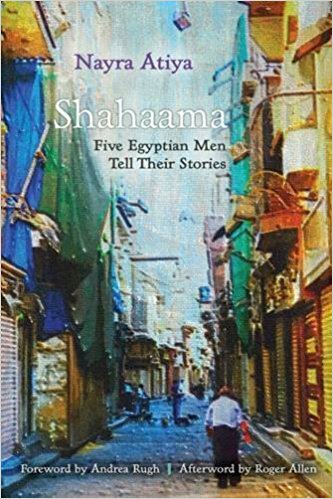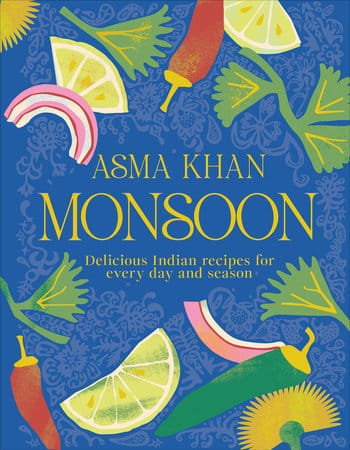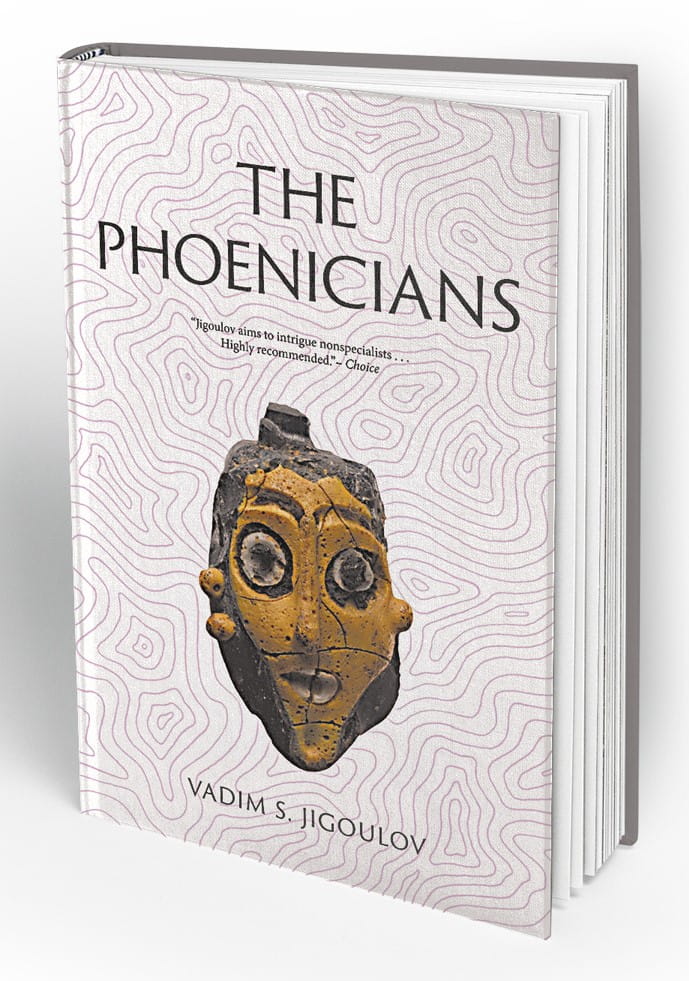
Shahaama: Five Egyptian Men Tell Their Stories
Alia Yunis
Nayra Atiya
2016, Syracuse UP, 978-0-81563-434-8 hb and 978-0-81561-061-8 pb, $49.95 and $19.95.
In 1982 Nayra Atiya wrote an award-winning oral history, Khul-Khaal: Five Egyptian Women Tell Their Story. This is the follow-up, based on interviews she recorded with Egyptian men in the same period and titled Shahaama after an Arabic word for doing the honorable thing. As Atiya tells it, personal circumstances and losing the original recordings for several years held the book back until now. The men, interviewed in their middle age, came of age under Gamal Abdel Nasser, the grandparents of the youth of Tahrir Square. There is optimism in their stories that one doesn’t hear much today. But this is a limited view: With the exception of a fisherman, the men come from Egypt’s then middle class. They are of different religions, a calculated decision on the part of the author, although religion as a source of political tension is not addressed. Nonetheless, these stories are compelling slices of life, depicting personal lives of 20th-century Egypt, particularly the early 20th century when the men talk of their childhoods.
You may also be interested in...

Asma Khan’s Monsoon Cookbook Reclaims Taste of Home—Our Book Review
Known for her all-female kitchen at London’s Darjeeling Express, Asma Khan transforms her new cookbook into a memoir, steeped in nostalgia.
The Phoenicians
Rather than a single civilization, the Phoenicians appear here as a fleet of city-states-Arwad, Byblos, Sidon and Tyre-whose sea routes and trade networks tied the ancient Mediterranean together.